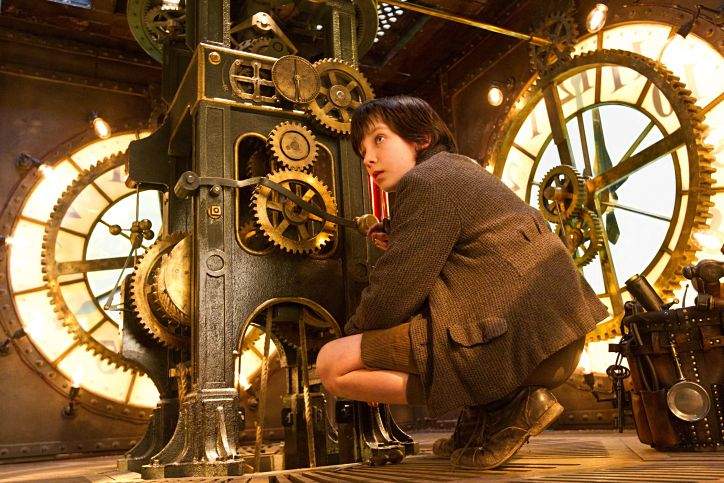Hugo
Scorsese’s moving and magical tribute to the pioneers of filmmaking.
Overview
A 3D children’s movie directed by Martin Scorsese sounds more like the premise of an SNL sketch than it does a good business idea for Paramount Pictures. The very notion of it elicits visions of Care Bears playing Russian Roulette, catchy musical numbers exploring the finer points of torture and morally ambiguous talking animals exchanging insults of such depravity even Billy Connolly would blush. The inevitable next step, one would assume, is David Fincher guest-directing an episode of Sesame Street in which the Count laughs maniacally while tallying the number of rusty electrodes he’s inserted into Elmo’s spine. But then you remember this is Martin Scorsese, and if anyone’s going to be capable of swapping genres it must surely be him.
Based on the book The Invention of Hugo Cabret by Brian Selznick, Hugo tells the enchanting tale of a 12 year-old orphan fated to an invisible existence living in and behind the walls of a busy Parisian train station in the 1920s. It may sound like Harry Potter but it’s more Quasimodo meets Oliver as Hugo (Asa Butterfield) pickpockets food for himself and machinery for his secret project: the restoration of an intricate automaton discovered by his father but left unfinished because of his untimely death. In the meantime Hugo whiles away his days keeping the station’s clocks running and observing the amusing ballet of human interactions around him: the star-crossed flirtation between the painter and the café owner, the playful exuberance of the toy seller’s goddaughter Isabelle (KickAss’s Chloë Moretz) and the secret pining for the florist by the tenacious local gendarme Gustav (in a delightful turn by Sacha Baron Cohen).
It’s not until about halfway through the film, however, that we learn the true story of Hugo. Using his two child actors as explorers Scorsese embarks upon a time-travelling journey back to the very origins of the industry in which he has so faithfully served for the past fifty years. In short, Hugo is Scorsese’s love letter to cinema and it is, quite simply, exquisite. Sir Ben Kingsley’s character Georges Méliès represents the cornerstone of this magical cinematic history lesson and his tale proves as exhilarating as it is tragic. From that moment on the movie evolves from an amusing children’s tale into something younger audiences will still enjoy but in which it’s the adults who will ultimately delight.







